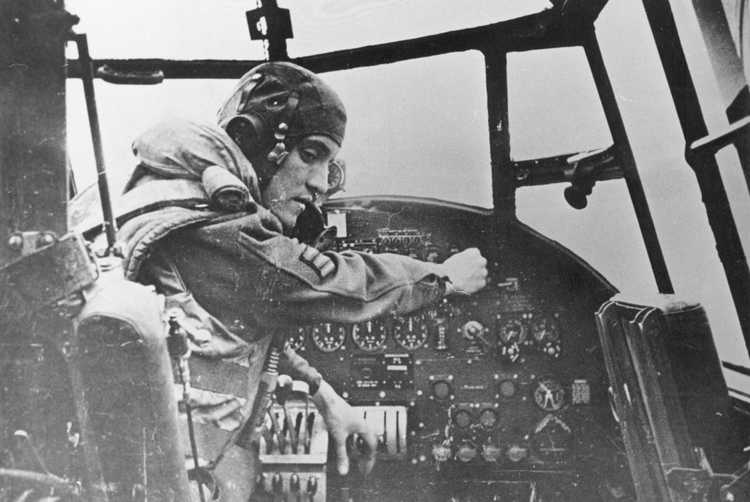A bomber aircraft needed a pilot, a navigator, a wireless operator and the gunners, the boys who operated the turrets. In larger aircraft, the four-engine bombers, seven people were needed; one pilot, a navigator, a bombardier, a flight engineer, two gunners and a wireless operator.
Some joined the Royal Air Force as military service but you had to personally choose for the Air Force. It was not compulsory to join the airline crew. They didn’t force it on you. The choice was your own. It was also an adventure for those young boys. I think England compared a lot to the First World War, the trench warfare. That was not good. Anything was better than that. The infantry really suffered in the First World War, and the horror of that still lingered. These Young men had heard the stories from their fathers who had been in it. Due to this there were a lot who thought not me, let me fly. I personally think flying is nice, but I would never join the submarines.
If you wanted to be pilot or navigator, you still needed a reasonable education. The American pilots and navigators were all officers but the British had pilots who were just sergeant. They were still young men, who had a bit of training and perhaps had learnt to fly. The gunners were just regular men who wanted to fly anyway. That was something they could do. If you were lucky and had talent for being a wireless operator you could do that. This was often a dual function and the wireless operator was also trained as a gunner. And also some gunners as a wireless operator.
They were very ordinary, everyday young men. Some veterans were just twenty years old. You were classed as a veteran once you had the necessary war flights behind you. The “V” actually indicates that you had been in combat.
I have a very good friend that flew in a bomber during the war, as an air gunner. The British aircrews had to fly thirty flights over Germany before they could rest. Rest meant taking part in a training or something like that. And then they went up again. The losses on average were five percent per flight. Do the count, what were your chances? Statistically you would make twenty flights, so there was no way you would reach the thirty flights. I know some men who have flown double that but I also know of men who went down on their first flight. Resting somewhere under a cross. The Americans had to fly 25 flights. The difference was that the English flew at night and the Americans during the day. I have spoken to many men, air gunners who came to the memorial in Dronten. Once they realize that you too have taken part in the same war, they are willing to talk.
Flying towards the Netherlands they could already see the flak above Germany. They still carried on. Why? This was the enemy. The enermy that had conquered Europe, killed millions of Jews and more. That gave them the motivation to carry on. It was the enermy that had flatten Londen and Coventry.
There was a difference between the English and the Americans. The Royal Air Force included a lot of men from the occupied territories. There were Dutch, Belgian and French squadrons who flew with them. America had never been occupied. Neither had England but England was directly involved with being a 'bomber target' and most certainly the 'Battle of Britain. That was touch and go.
It doesn't happen to you
They Americans were sent there and they knew what they were getting into. Whether they were sitting here or in Afghanistan, they were sent. And as long as they were busy …! There was one day, later known as Black Thursday, 14 th October 1943, when the USAAF went to Schweinsfurt and lost sixty aircraft (B-17s). That’s sixty times ten crew members. It’s impossible to imagine being in the same formation and seeing your friends crashing; It doesn’t happen to you.
